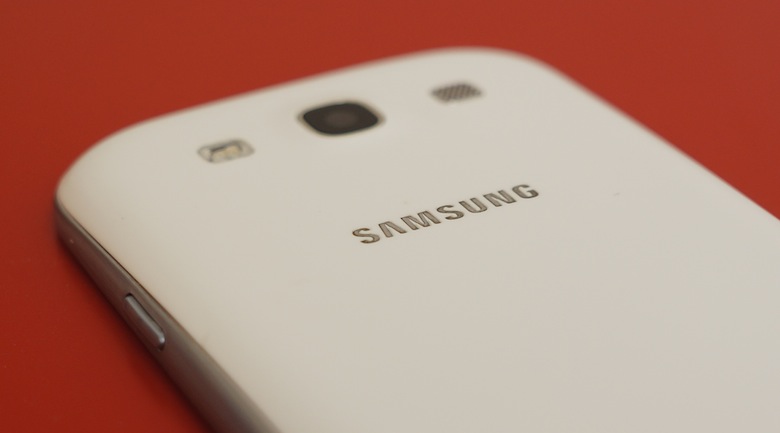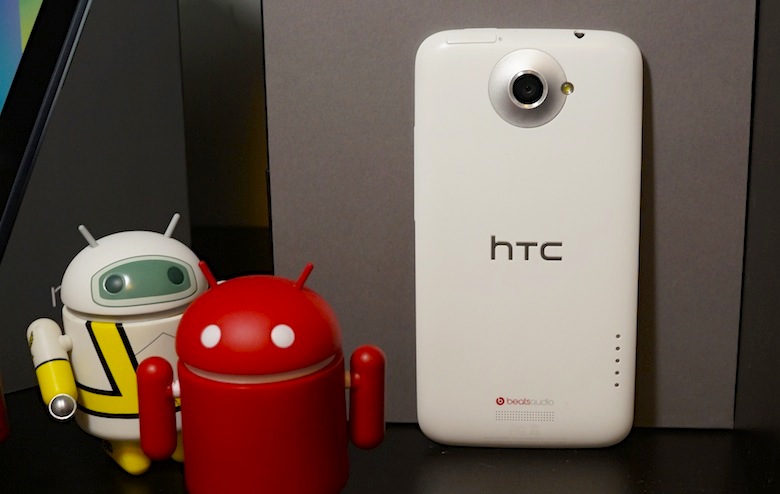There are few markets in the world that host as vicious competition as the mobile market here in the United States. Every move by every company is literally do or die. In just four years, we have witnessed a handful of mobile companies fail – some new companies that couldn’t find a foothold and older companies that couldn’t keep up with the changing of the tides.
We are only about a month and a half into 2013, yet the competition is as heated as ever. One of the largest trade shows of the year, where we saw several high-end 1080p handsets and even a gargantuan 6.1-inch smartphone, is a month behind us, and another show is just weeks away. And that’s just the beginning. BlackBerry (no longer Research In Motion) held the BlackBerry 10 conference at the end of last month, debuting the Z10 and Q10 handsets; HTC has a one-off event scheduled for February 19, where the rumored flagship M7 (or simply One) is believed to be making an appearance; and Samsung will presumably pull all the stops on March 15 with the Galaxy S IV. Lest we forget both Google I/O and CTIA will happen in May.
One thing is certain: there will be no shortage of high-end handsets this year.
Above all, however, all eyes are now on the two companies behind the two most highly-anticipated smartphones of the year (so far, at least): HTC and Samsung. Although Samsung is notably larger than its counterpart and thriving while HTC wades through financial turbulence, the South Korean and Taiwanese handset makers have a long-standing, unspoken rivalry, particularly amongst their respective die-hard fan bases here in the States.
Following the legendary Nexus One, HTC grew to be one of the most popular and reliable Android brands around. HTC guaranteed quality products with second-to-none build quality. But brand recognition, namely Galaxy S, stole from the likes of HTC and landed Samsung a seat in the throne atop the vicious smartphone market.
Fast forward to the present and very little has changed since. HTC is still churning out quality smartphones. But make no mistake, Samsung is still running the show. And because these two companies held very little presence at CES this year, rumors and hype are abounding. Simply put, with announcements pending, the M7 and Galaxy S IV are the two heavyweight contenders and will inevitably go toe to toe.
We know the Galaxy S IV – if its anything like its predecessors – will be a fantastic handset. It will come with a bevy of software features, a large, high-end display and top notch specifications. Word on the street alleges the Galaxy S IV will be a device of an entirely new caliber. It is believed to feature a 5-inch 1080p display, octa-core Exynos 5 processor with an octa-core Mali-T658 GPU, 2GB RAM and a 13-megapixel camera.
The question every Android fan will be asking, though, is: can the HTC M7 compete with the likes of the Galaxy S IV?
As far as specifications go, it’s very likely. The HTC M7 is rumored to have it all: a 4.7-inch 1080p display (likely S-LCD3), a 4.3-Ultrapixel or 13-megapixel camera, 2GB RAM, 32GB inbuilt storage and a 1.7GHz quad-core Snapdragon S4 Pro chip. With the exception of Samsung’s Exynos 5 chip, the differences in the two phones, at least in terms of performance, are negligible.
For most, it will come down to two main features: battery life and camera. HTC has a reputation for devices with lackluster stamina. It equips great devices with meager batteries, and many associate the company with needing a spare charger or battery pack. Samsung will likely fit its flagship with a removable battery, and it’s safe to assume the OEM cell will be a fairly generous capacity.
Image sensors have been a primary focus for many companies over the last two years. The M7 is rumored to sport either a 13-megapixel camera or a 4.3-Ultrapixel shooter. The performance of said Ultrapixels is, at this point, still very questionable. The S IV is said to come with a 13-megapixel camera around back. At the very least, these two phones should be passable in the image sensing department.
What truly makes this a David and Goliath battle, however, is the way HTC and Samsung do business. Samsung is a household name for a reason. Sure, it dabbles in other markets and has a major stake in several other industries. But it is a globally known brand and treats its smartphone business no differently. The Galaxy S III was launched as a single device around the globe. Although some specifications didn’t translate to the LTE-ready U.S. market, the Galaxy S III was launched as the same device for everyone. Samsung took a page from Apple’s book, so to speak.
HTC, on the other hand, caters to the will and needs of the carriers stateside. It still runs with the mindset of an ODM, or Original Design Manufacturer, wherein HTC designed and built the devices only for them to be branded by other companies.
The Taiwanese firm made some drastic changes to the way it does branding last year, but hardly made a dent in the way it succumbs to carrier requests. The One X and One S last year had the chance to be incredible. But in the States, the One S made it no further than T-Mobile and the One X stopped at AT&T. The similar but different HTC EVO 4G LTE found its way to Sprint, and no One or One-like device made its way to Verizon (unless you consider the Incredible 4G LTE to be One-like). There was also a mid-cycle refresh, the One X+ and the DROID DNA.
Less is more.
When you compare any one of those devices to the entire global sales of the Galaxy S III, it’s quite the one-sided match.
However, HTC has a shot – albeit slim – at leveling the playing field. It makes quality devices. No one can deny that. But its drastically limiting its sales and brand recognition by accepting carrier exclusivities. If HTC can deliver a high-end device and launch it globally, or cross-carrier here in the U.S., the M7 could certainly rival the Galaxy S IV.
HTC still isn’t a household brand. But if HTC doubles down on advertising as CEO Peter Chou promised and the M7 is marketed simply as One, as rumors suggest, this could be a step in the right direction for the firm.



No comments:
Post a Comment
Let us know your Thoughts and ideas!
Your comment will be deleted if you
Spam , Adv. Or use of bad language!
Try not to! And thank for visiting and for the comment
Keep visiting and spread and share our post !!
Sharing is a kind way of caring!! Thanks again!